Dominican Republic: Haitians Strike Back on Independence Day
By Dady Chery
Haiti Chery
The anger had been building for years. Anse-à-Pitres residents, on the Haitian side of the southern Haitian-Dominican border, who go to sell their goods at the bi-national Pedernales market, are routinely excluded for capricious reasons, even sometimes beaten away. Haitian rice, bananas, rum and other drinks are banned. To enter the market, Haitian vendors must pay over 100 pesos ($2.25). If they cannot afford this fee, or their merchandise is deemed to be unauthorized, goods much more valuable than the fee are confiscated.
An increased repatriation of Haitian migrants (more than 15,000 per year) has created a climate that gives license to racist behavior. Long-term residents of Dominican towns like Enriquillo are often packed up, together with infants, into army helicopters and then dumped into Anse-à-Pitres, without even a chance to collect their belongings. These repatriations are principally economic crimes by Dominican employers and officials, who withhold the deportees’ salaries and steal all their savings, including money, jewelry and farm animals, before covering up their theft with arson. Birth certificates, seeds, furniture and clothes alike vanish into flames.
Appeals to the Haitian government to defend the rights of its nationals have fallen on deaf ears. In fact, during a boycott of the Dominican Republic after it denationalized its black citizens of Haitian ancestry in fall 2013, the Haitian Tourism Minister, Stephanie Balmir Villedrouin, visited Santo Domingo for a conference. Similarly, the Haitian Ambassador to Santo Domingo, Fritz Cineas, has shunned international efforts to hold the Dominican government to supranational standards of human rights; instead, Mr. Cineas has repeated the Dominican Republic’s argument that its discriminatory policies represent an exercise of sovereignty. To make matters worse, for several years Anse-à-Pitres, a town of about 20,000 residents, has had no genuine representative to the Haitian government, because its elected mayor has been replaced by Guirlène Daphnis, a Michel Martelly-appointed interim executive.
It is hardly surprising that in this context of an unrepresentative government, hostile to its own nationals, Dominicans have felt yet more emboldened to abuse Haitian farmers: most of them vegetable growers and fishermen. During the second half of 2014, Dominican navy ships stringently enforced a ban on fishing by Haitians in Dominican waters. Simultaneously Dominican yachts have fished the Haitian coast unsustainably, raising considerable anger in the local fishing community. Contrary to the propaganda that the Dominican Republic is a green paradise, its coastlines have been dredged, overfished, and sold wholesale to foreigners. By contrast, the Haitian coastlines represent some of the last remaining virgin coasts in the Caribbean.
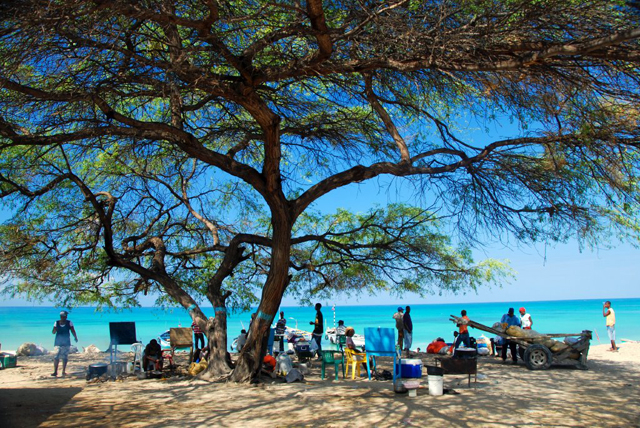
On the 211th Anniversary of Haitian Independence, January 1, 2015, some Dominican navy people must have decided to have their fun by ruining the celebrations of a group of Haitian fishermen, and possibly creating an incident to spoil the holiday for all Haitians, except perhaps Martelly’s cronies. The fishermen, seven in all (Jimmy Fleurimont, Yvon Fleurimont, Nathanaël Lazarre, Jean Toussaint, Jean-Mercy Charles, Erick Casseus, and Dieula Carrier), had been fishing near the area of Recif, Anse-à-Pitres, when they were arrested in their own waters by personnel from a Dominican navy ship. Four fishing boats were confiscated together with their catch and, according to some witnesses, the boats were destroyed. The fishermen were made to kneel on a beach, at gunpoint, with their arms over their heads, photographed, and then taken away.
The response by Haitian citizens was swift and categorical. Anse-à-Pitres residents took two Dominican fishermen (Eddgar Hernández and Wilson Pérez González) hostage and confiscated their yacht, yanked out the gates to the Pedernales market entrance, smashed the glass front of the Dominican customs house and threw stones and insults at the border guards who tried to stop them. These guards, who are hated by Dominicans and Haitians alike, actually belong to the private United States company, Specialized Border Security Corps (Cuerpo Especializado de Seguridad Fronteriza Terrestre or CESFRONT). Witnesses say that CESFRONT retaliated with gunshots.
Another group of residents blockaded the Dominican Consulate in Anse-à-Pitres with burning tires, barricaded all the roads to the area, and took hostage, from the consulate, four Dominican military personnel (Zaida Polanco, Jacobito Espinal, Domingo Solis, and Angel Estevez) and two civilians (Erickson Hernandez and Wilson Pérez).
After many hours of negotiations, all the Haitian fishermen were released, as were the hostages from the Dominican consulate. The Dominican fishermen were the last ones to go, on the morning of Sunday, January 4, 2015. No serious injuries were reported on either side of the skirmish; nevertheless, almost one week later, the market remained closed.
The Dominican Senator, Dionis Sanchez, has announced that a bilateral committee will be formed to settle future disputes, but one may reasonably expect that Haitians will be poorly served by such a group. Dominican aggressions are unlikely to stop unless Anse-à-Pitres residents continue to take the law into their own hands, or the entire Haitian citizenry forces a replacement of the current traitorous occupation regime with a representative government.
Sources: Haiti Chery

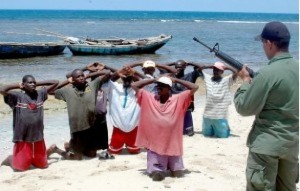
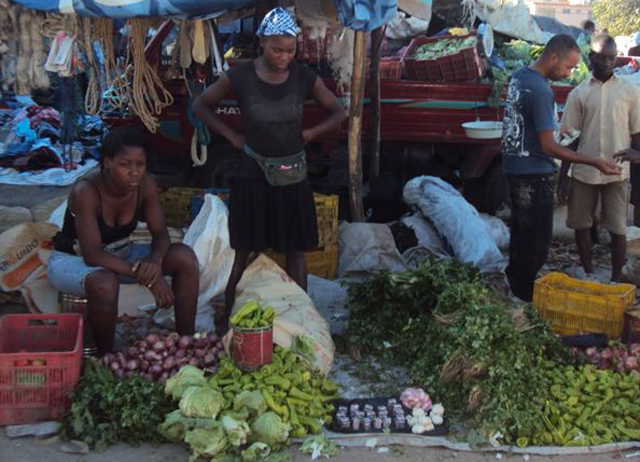
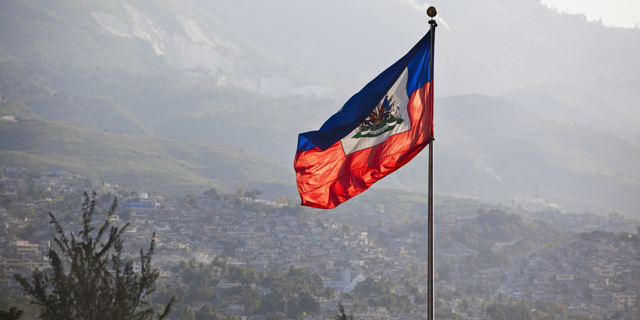
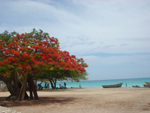





Thanks for the very insightful analysis; as an African-American I am very sorry that the Congressional Black Caucus has not been more forceful in its opposition to Haiti’s occupation and I especially found your critique of racism among so-called progressives right on! Keep up the fight!!
You are welcome, Nyere, and thanks for the kudos. Will do.